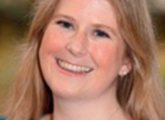If we are to meet all our students’ educational needs, recognising them correctly is essential. Carol Frankl has some advice…
When I am thinking about identifying children with special needs, I find it helpful to remind myself that SEN is a social construct, so there is no absolute definition of what constitutes such a thing. What we do know is that it exists along a continuum of need that that covers 4 areas:
- Cognition and learning
- Communication and interaction
- Behaviour emotional and social needs and
- Physical and medical.
With no real hard and fast rules, then, it’s important for teachers to discuss any concerns they may have with the SENCO and other colleagues, as a plethora of opinions can really help shape an eventual course of action.
I set myself a number of questions to answer to help me organise my thinking. One might think that most of the answers would be readily available in the SEN Code of Practice (2001), which offers guidance about the identification, assessment and provision for students with special needs, and of course that’s true to a great extent. When used alongside guidance about good, quality first teaching, and your own school’s teaching and learning policy, it provides a sound framework for building your own understanding of special needs. The main difficulty is that the criteria for deciding that a child has special needs
can seem to vary from school to school, and even from class to class.
Basic principles
All schools will offer some guidance about the way SEN is identified in a particular setting, as well as general behaviour policy and practice. If you are worried about a specific student, then gathering evidence to support your concerns is also very helpful, especially if you are able to say what you have already tried and what the child’s response has been.
The SEN Code of Practice states that children with SEN require something that is ‘additional to and different from’ other students of the same age. All teachers are required to follow the 3 principles in the Inclusion Statement (embedded in Including all Learners on the DFE website).
These are:
A. Setting suitable learning challenges
B. Responding to pupils’ diverse learning needs
C. Overcoming potential barriers to learning and assessment for individuals and groups of pupils.
I see teachers under pressure to get results and who want the SEN pupils removed from classes to be taught by an ‘expert’, who can magically make a child ‘better’ so he can be slotted back in…
Improving outcomes
So what does ‘additional to and different from’ really mean? Again, there is no absolute dividing line between pupils with and without additional needs. What I do is ask myself if my usual methods of teaching and differentiating are effective for all children – and it is only when all my usual classroom management strategies are exhausted that I will consider a potential cause for concern. At this point, I ask myself, ‘what specifically am I concerned about?’ and ‘what will I experience once I have overcome this?’ I can then often identify the barriers to learning that are within my remit and over which I have some influence. This is a positive, no nonsense problem solving approach that is very empowering; I am no longer thinking that it is the child’s fault that I am unable to teach him. I have the answers in my toolbox and I can seek help from other colleagues.
From this position, it’s useful to carry out a baseline assessment so that you have an accurate picture with good quality evidence of the young person’s strengths and weaknesses around your area of concern, which will differ according to the type of need you are identifying. I am often asked how to include children whose levels do not reach national expectations – I see teachers under pressure to get results and who want the SEN pupils removed from classes to be taught by an ‘expert’, who can magically make a child ‘better’ so he can be slotted back into the whole class. Of course, the reality is somewhat different. There are no magic potions – but organisations like The Southover Partnership can work alongside teachers and children to support and develop their confidence, skills and understanding, and ensure the best possible outcomes for everyone in the classroom.
About the author
Carol Frankl is a leading personality of the sen industry with over 30 years experience in the field. In addition to being a passionate educator, she is a regular sen speaker, a provider of sen training and consultancy, and founder and managing director of the southover partnership, one of the uk’s leading independent and managed sen organisations, which provides a multi-faceted approach to special educational needs, including a special school (the southover partnership school), and educational support services comprising a support-in- school service, a specialist support team of experts and staff training and consultancy.
Find out more at southoverpartnership. com.











If we are to meet all our students’ educational needs, recognising them correctly is essential. Carol Frankl has some advice…